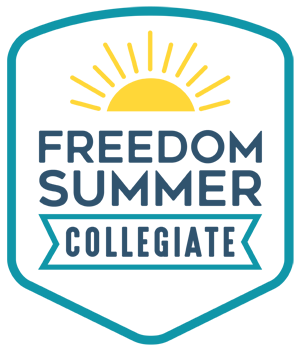Reflection from Marina Watanabe
Arrival in Meridian:
After orientation in Jackson, Mississippi where we learn how to best serve our students and maximize their achievement in the classroom in the short time we have with them, we arrive in Meridian, Mississippi. I meet some of the students, and overhear one ask a teacher, “Is Miss Soon back?” To which the teacher patiently responds, “No, Miss Soon isn’t back. She taught you last summer, but Miss Watanabe is a new teacher who will be teaching you this summer.” This really begins to bring home the small world that these students live in. I am possibly the second Asian they have ever interacted with. I am delighted to be able to expand their Asian rolodex and introduce myself to them. I worry they won’t like me as much as they seem to like Miss Soon (one of their teachers from last summer). I am determined to be their new favorite Asian.
Day one of class:
We start with a session of introductions, and I am impressed with the career goals of the students. Most of them already have high-powered careers in mind! Half of them want to be doctors. Three of them surgeons! Two of those surgeons want to be neurosurgeons!!! They say that neurobiology is the most noble and pure field because it is simply the brain wanting to understand itself—I wonder, what does that say about people who want to fix brains? Is that an indicator of the ultimate problem solvers who can bring change to the world? Conversely, neurobiology is also said to be the most narcissistic field because it is the brain wanting to understand itself. I hope my students have a flavor of that latter definition because narcissism is really just runaway confidence, and I want my students to be confident.
My students and I discuss ways to help them get to their goals. They are surprised to learn about the existence of “office hours” in college and the fact that their professors want them to succeed. I realize many of these students have not been made aware of the support systems that exist in this world, if only you know about them or know someone who can help you find them. They seem used to a system that beats them down and doesn’t allow for their growth. I realize they are driven and motivated, but unfortunately lack a college support system. My fellow teachers and I decide we will gradually work to change that by helping them learn how to advocate for themselves and how to find resources that will aid them in the future.
Day two of class:
In order to gain a baseline of the students’ previous knowledge about cancer, we go through some questions together:
What is cancer?
How do you get cancer?
How can you cure cancer?
I am surprised when several students answer “How can you cure cancer?” with the unexpected (for me, at least) response “prayers.” Another student quickly chimes in “miracles.” The seamless way in which these students combine their religion and their love for science is a philosophy I have not had much previous exposure to. I marvel at their confident navigation of this space.
Day three of class:
We learn about the Hallmarks of Cancer and what sets cancer apart from normal cells. The students are equally horrified and impressed. They lap up the information, they ask questions, paramount among them is “WHY?!” They are frustrated and unsatisfied with the response “We don’t really know.” You and me both, class. You and me both.
Marina Watanabe is a Ph.D. Candidate in Biomedical Science. Her course this summer is on the biology of cancer and asks the question, "Why haven't we cured cancer yet?"

